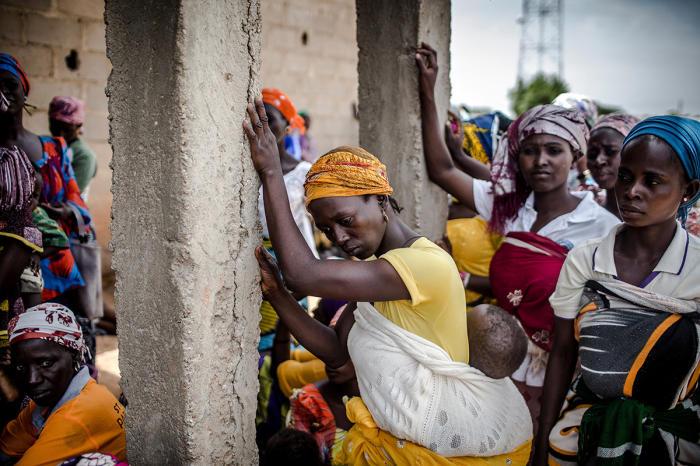
Fulani herdsmen kidnap Christians in attack on villages in Nigeria
Fulani herdsmen on Friday kidnapped four Christians in an attack on villages in north-central Nigeria, sources said.
One woman was among the four Christians abducted from two predominantly Christian villages, Mai-Iddo and Arikon, in Kachia County, Kaduna state, said area resident Festus Audu. He identified the assailants as Fulani herdsmen and called them “bandits.”
“The bandits, wielding deadly weapons, kidnapped the four Christians at about 5 p.m. on Nov. 1 as the Christians were working on their farms,” Audu told Christian Daily International-Morning Star News in a text message. “This is a second invasion of Mai-Iddo village in the past two months.”
The herdsmen also attacked Mai-Iddo village in Oct. 17, kidnapping four Christian women and a child, he said.
Women and girls abducted at gunpoint
Fulani herdsmen on May 19 attacked another predominantly Christian community in Kachia County, Mai-Goro village, kidnapping seven Christian girls and women at gunpoint, said area resident Peter Madaki.
He identified those kidnapped as Elizabeth Markus, 13; Alheri Maichibi, 13; Lydia Iliya, 6; Bridget Obadiah, 4; Amama Hassan, 3; Godiya James, 30; and Beauty Mandela, 23.
In Bishini village on April 14, herdsmen kidnapped five Christians, said area resident Abraham Bishini.
“The bandits invaded the community and kidnapped Samuel Danbayi, our community leader, alongside four of his children in his house at about midnight,” Bishini said. “The herdsmen demanded the payment of a ransom of 15 million naira [$9,070 USD] before they can release the Christians from Bishini, our community.”
In the county’s Goshe village, Fulani herdsmen on April 3 killed a Christian and kidnapped 13 others, said area resident Musa Bala.
“The herdsmen shot and killed a Christian, Philibus Andrew, a community leader of Goshe village,” Bala said. “The incident occurred at about 11 p.m. The herdsmen first attacked the house of Philibus Andrew and shot him dead. They then moved to the house of another Christian, Abraham Dangana, where they kidnapped him, his wife, eight children and three other Christian relatives of his.”
The herdsmen also attacked neighboring Badeko village, another predominantly Christian community, on the same day, where they kidnapped 10 Christians, he said.
Hassan Mansur, a spokesman for the Kaduna State Police Command, answered inquiries by Christian Daily International-Morning Star News about the attacks with a brief statement.
“The incidents you’re inquiring about occurred,” Mansur said. “However, security agencies, including police personnel, are in the affected areas working to end the activities of the bandits.”
Nigeria remained the deadliest place in the world to follow Christ, with 4,118 people killed for their faith from Oct. 1, 2022 to Sept. 30, 2023, according to Open Doors’ 2024 World Watch List (WWL) report. More kidnappings of Christians than in any other country also took place in Nigeria, with 3,300.
Nigeria was also the third highest country in number of attacks on churches and other Christian buildings such as hospitals, schools and cemeteries, with 750, according to the report.
In the 2024 WWL of the countries where it is most difficult to be a Christian, Nigeria was ranked No. 6, as it was in the previous year.
Numbering in the millions across Nigeria and the Sahel, predominantly Muslim Fulani comprise hundreds of clans of many different lineages who do not hold extremist views, but some Fulani do adhere to radical Islamist ideology, the United Kingdom’s All-Party Parliamentary Group for International Freedom or Belief (APPG) noted in a 2020 report.
“They adopt a comparable strategy to Boko Haram and ISWAP and demonstrate a clear intent to target Christians and potent symbols of Christian identity,” the APPG report states.
Christian leaders in Nigeria have said they believe herdsmen attacks on Christian communities in Nigeria’s Middle Belt are inspired by their desire to forcefully take over Christians’ lands and impose Islam as desertification has made it difficult for them to sustain their herds.
Source » msn.com





